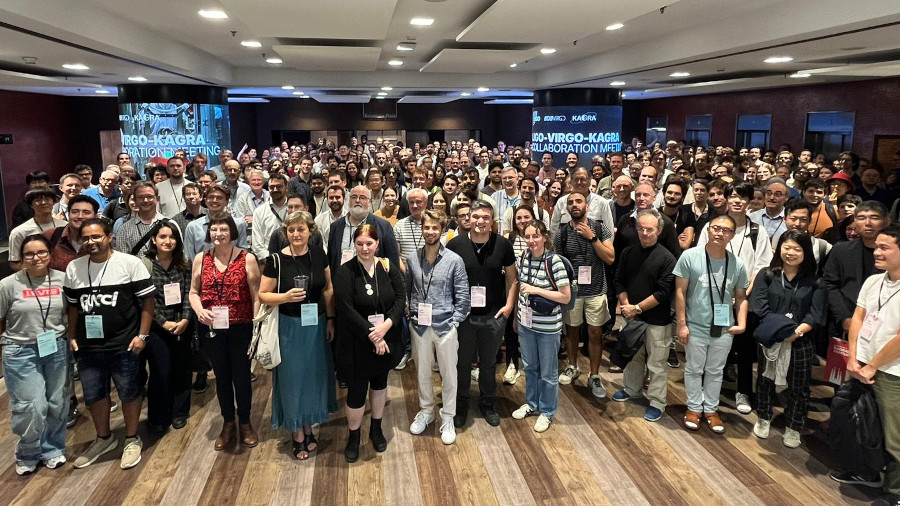LIGO-Virgo-KAGRA 2024 Collaboration Meeting about gravitational waves
The LIGO-Virgo-KAGRA Collaboration Meeting officially kicked off in Barcelona, bringing together nearly 800 researchers from around the world to discuss the latest breakthroughs in gravitational wave astronomy. Hosted by the Institut de Física d’Altes Energies (IFAE), a CERCA centre located at the campus of the Universitat Autònoma de Barcelona, the meeting runs from 23 to 27 September 2024, offering a platform for the global gravitational wave research community to share their latest results.

In his opening speech, Andreu Mas-Colell, President of the Barcelona Institute of Science and Technology (BIST), welcomed participants to Barcelona, highlighting the city’s expanding role as a hub for cutting-edge scientific research. Mas-Colell discussed Barcelona’s scientific ecosystem and its ambition to further solidify its position as a leading city in science.
The decision to hold the conference in Barcelona reflects the city’s growing status within the gravitational wave community. In 2019, IFAE initiated its long-term involvement in the Virgo Collaboration under the leadership of ICREA Professor Mario Martinez. With the recent addition of ICREA Research Professor Andrew Lundgren, the group has expanded its role within the LIGO Collaboration. IFAE is also contributing to the design and governance of the Einstein Telescope, a next-generation gravitational wave observatory that is expected to revolutionize the field. IFAE Director Eugenio Coccia currently serves as the Chair of the Einstein Telescope Collaboration Board.
LIGO, Virgo, and KAGRA
LIGO (Laser Interferometer Gravitational-Wave Observatory), Virgo, and KAGRA are three major international collaborations dedicated to detecting gravitational waves—ripples in spacetime caused by some of the universe’s most extreme events, such as black hole mergers and neutron star collisions. LIGO operates two large observatories in the United States, one in Louisiana and the other in Washington state, and is known for the groundbreaking first detection of gravitational waves in 2015. Virgo, located near Pisa, Italy, is a European collaboration that has made crucial independent detections. KAGRA, located deep underground in Japan, is the first gravitational wave observatory in Asia. LIGO, Virgo, and KAGRA work together to enhance global gravitational wave observations.
Why Gravitational Waves Matter
Gravitational wave astronomy is revolutioniing our understanding of the universe by allowing scientists to observe phenomena that are invisible to traditional telescopes. By studying these waves, researchers are gaining new insights into black holes, neutron stars, and even the earliest moments after the Big Bang.
Sponsors and Partners
The LIGO-Virgo-KAGRA Collaboration Meeting received the support of several leading institutions, including IFAE, UAB, CERCA, ICREA, BIST, IFT, UAM, UV, ICCUB, CIEMAT, IGFAE, and AEI.